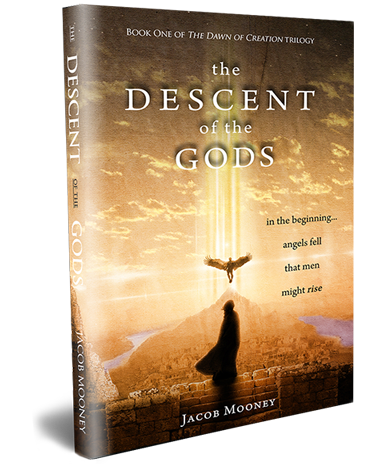ATHENAGORAS was a 2nd-century Christian apologist and philosopher who made a significant impact on early Christian thought and was well known for his writing, particularly “A Plea for the Christians”, in which he advocated to Rome for mercy and toleration for Christians.
In this work, he put forth his beliefs about the “sons of God” mentioned in Genesis 6:1-4. According to Athenagoras, the “sons of God” were angels with free will who failed their calling when they married the “daughters of men.” This union resulted in the birth of the Nephilim, also referred to as the “giants in the Bible.”
This idea was consistent with the belief held by many Jews and early Christian church fathers at the time, and was also found in the non-canonical text, the Book of Enoch, which predates Christ at least 200 years.
Athenagoras on the Angels that sinned
For this is the office of the angels — to exercise providence for God over the things created and ordered by Him…
Just as with men, who have freedom of choice as to both virtue and vice… so is it among the angels.
Some, free agents, you will observe, such as they were created by God, continued in those things for which God had made and over which He had ordained them;
but some outraged both the constitution of their nature and the government entrusted to them… these fell into impure love of virgins, and were subjugated by the flesh, and he became negligent and wicked in the management of the things entrusted to him.
Of these lovers of virgins, therefore, were begotten those who are called giants.
Athenagoras’ belief about the “sons of God” was that these were angels who have free will just like mankind possess. In his view, Genesis 6 is simply an example of angels acting out of lust and forsaking their ‘habitation’ as Jude mentions.
And he intentionally notes that the sons of these unions resulted in offspring ‘who are called giants’. This reference would immediately remind Roman and Greek readers of their own myths of giants that warred against heaven.
Like other church fathers of his time, there is no hint of any controversy in the passage or of rival alternative interpretations. This indicates that at least for Anthenagoras, there was no issue with identifying the ‘sons of God’ as angels.
Further Reading:
Check out The Watchers’ Whispers: Athenagoras’s “Legatio” 25,1-3 and the “Book of the Watchers, which explores the passage in Athenagoras’s “Legatio pro christianis”, which includes a brief retelling of the Jewish story of the Watchers. Athenagoras’s version of the myth is closest to the “Book of the Watchers,” but he also introduces Greek philosophical ideas into the story. The most important discovery is that Athenagoras analyzes the way fallen angels act within human souls using Stoic psychological terms. This kind of investigation was new at the time and was later expanded on by other philosophers like Clement, Origen, and Evagrius.






